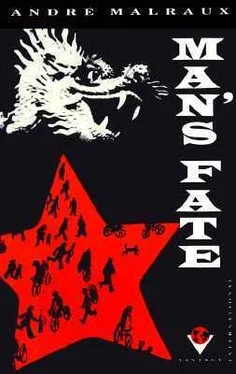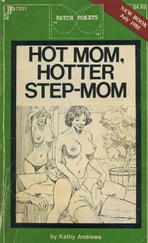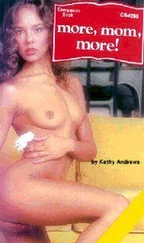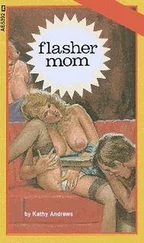“But I … I …” Clappique spluttered.
“Kyo has just been arrested,” said Gisors. “You know KOnig, don’t you?”
“I … But I’ve got nothing to do with it. ” Gisors studied him carefully. “If only he isn't too drunk,” he thought.
“You know KOnig,” he repeated.
“Yes, I, I … know him. I have. done him a service. Great service.”
“Can you ask him to return it?”
“Why not? But what?”
“As the chief of Chiang Kai-shek’s secret police he can have Kyo released. Or, at least, prevent his being shot: you understand it’s most urgent. ”
“Y-yes. … All right.”
He had so little confidence in KOnig’s gratitude, however, that he had considered it useless and perhaps imprudent to go and see him, even after Shpilevski’s warning. He sat down on the bed, his nose pointed straight down to the floor. He did not dare to speak. The tone of Gisors' voice convinced him that the latter did not suspect that he was responsible for Kyo’s arrest: Gisors saw in him the friend who had come to warn Kyo that afternoon, not the man who was gambling at the hour of his appointment. But Clappique could not convince himself of this. He did not dare to look at him and could not calm himself. Gisors was wondering from what drama or what extravagance he was emerging, not guessing that his presence was one of the causes of his panting breath. It seemed to Clappique that Gisors was accusing him:
“You know, old man, that I'm not. anyway that I’m not as mad as all that; I, I. ”
He could not stop stammering; it seemed to him at times that Gisors was the only man who understood him; and at times that he took him for a buffoon. The old man was looking at him without speaking.
“I. What do you think of me?”
Gisors was more inclined to take him by the shoulders and lead him to Konig’s than to talk to him; but beneath what he took to be his intoxication he discerned such a turmoil that he did not dare to refuse to enter into the game.
“There are those who need to write, those who need to dream, those who need to talk. It’s all the same thing. The theater is not serious, but the bull-fight is; novels aren’t serious, but mythomania is.”
Clappique got up.
“Have you hurt your arm?” asked Gisors.
“A twist. Not a word. ”
Clappique had awkwardly turned his arm to hide his wristwatch as if this watch which had shown him the time in the gambling-hall would have betrayed him. He perceived by Gisors’ question that this was idiotic.
“When will you go and see KOnig?”
“Tomorrow morning?”
“Why not now? The police are awake tonight,” said Gisors with bitterness, “and anything might happen. ”
Clappique was only too glad. Not through remorse (had he been at the game again he would have stayed again), but by way of compensation.
“Let’s run, old dear. ”
The change which he had noticed in the room upon entering again made him uneasy. He looked carefully, was stupefied at not having seen it before: one of his Taoist paintings-“to make one dream”-and his two finest statues had disappeared. On the table, a letter: Shpilevski’s handwriting. He guessed. But he did not dare to read the letter. Shpilevski had warned him that Kyo was in danger: if he were to let himself go to the point of talking about him, he would be unable to avoid telling everything. He took the letter and put it in his
As soon as they were outside they encountered armored cars and trucks loaded with soldiers.
Clappique had almost recovered his calm; to hide the anxiety from which he could not yet free himself, he played the fool, as usual:
“I would like to be a wizard, to send the caliph a uni- corn-a sun-colored unicorn, I tell you-which would appear in the palace, shouting: ‘Know, Caliph, that the first sultana is unfaithful to you!’ Not a word! I would be grand as a unicorn myself, with my nose! And of course, it wouldn’t be true. Apparently nobody realizes how voluptuous it is to live in another person’s eyes an altogether different life from his own. Especially a woman’s. ”
“What woman has not invented a life-history for at least one of the men who have accosted her on the street?”
“You. think everyone is a mythomaniac?” Clappique’s eyelids flickered nervously; he walked more slowly.
“No, listen,” he said, “tell me franldy: why do you think they aren’t?”
He now felt an urge, curiously foreign to himself but very strong, to ask Gisors what he thought of gambling; and yet, if he spoke of gambling he would surely confess everything. Was he going to speak? Silence would have forced him to; luckily Gisors answered: “Perhaps I’m the person least capable of answering you. Opium teaches only one thing, which is that aside from physical suffering, there is nothing real.” “Suffering, yes. And. fear.”
“Fear?”
“You are never afraid, with o-opium?”
“No. Why?”
“Ah____ "
In truth, Gisors believed that if the world was without reality, men-even those who are most opposed to the world-have an intense reality; but that Clappique, precisely, was one of the rare beings who had none. And this conviction tormented him, for it was into those unsubstantial hands that he was giving over Kyo’s fate. Beneath the attitudes of every man there is a base that can be touched, and thinking of his affliction enables one to have an inkling of its nature. Clappique’s affliction was independent of him, like that of a child: he was not responsible for it; it could destroy ^m, it could not modify him. He could cease to exist, disappear in a vice, in a monomania; he could not become a man. “A heart of gold, but hollow.” Gisors perceived that at the base of Clappique there was neither affliction nor solitude, as in other men, but sensation. Gisors sometimes gauged other men by imagining their old age: Clappique could not grow old. Age did not bring him human experience, but an intoxication-lust or drugs-in which all his means of ignoring life would at last merge. “Perhaps,” the Baron was thinking, “if I told him everything, he would find it quite normal. ” Shots were now firing everywhere in the Chinese city. Clappique begged Gisors to leave at the boundary of the concession: Konig would not receive him. Gisors stopped, watched his thin, loose figure disappear in the mist.
The special section of Chiang Kai-shek’s police was quartered in a plain villa built about 1920: suburban style, but with windows framed in extravagant blue and yellow Portuguese ornaments. Two sentinels and more orderlies than usual; all the men armed; that was all. On the card which a secretary handed him Clappique wrote “Toto,” leaving the occasion of his visit blank, and waited. It was the first time he found himself in a lighted place since he had left his room: he drew Shpilevski’s letter from his pocket:
My Dear Friend:
I have yielded to your insistence. My scruples were well founded, but I have thought it over: you enable me in this way to recover my peace of mind, and the profits which my venture promises are so great and so certain that I will surely be able to repay you, within a year, with objects of the same kind, and finer. The food business, m this city. .
There followed four pages of explanation.
“It doesn’t look very good,” thought Clappique, “not good at all. ” But an orderly was coming for him.
KOnig was waiting for him, seated on his desk, facing the door. Thick-set, dark, a crooked nose in a square face. He came towards him, shook his hand in a brisk, firm manner that separated rather than united them.
“How are you? Good. I knew I would see you today. I’m glad I was able to be of use to you in my turn.” “You are for-r-midable,” answered Clappique, half playing the buffoon. “I’m only wondering if there isn’t a misunderstanding: you know I’m not interested in politics. ”
Читать дальше











